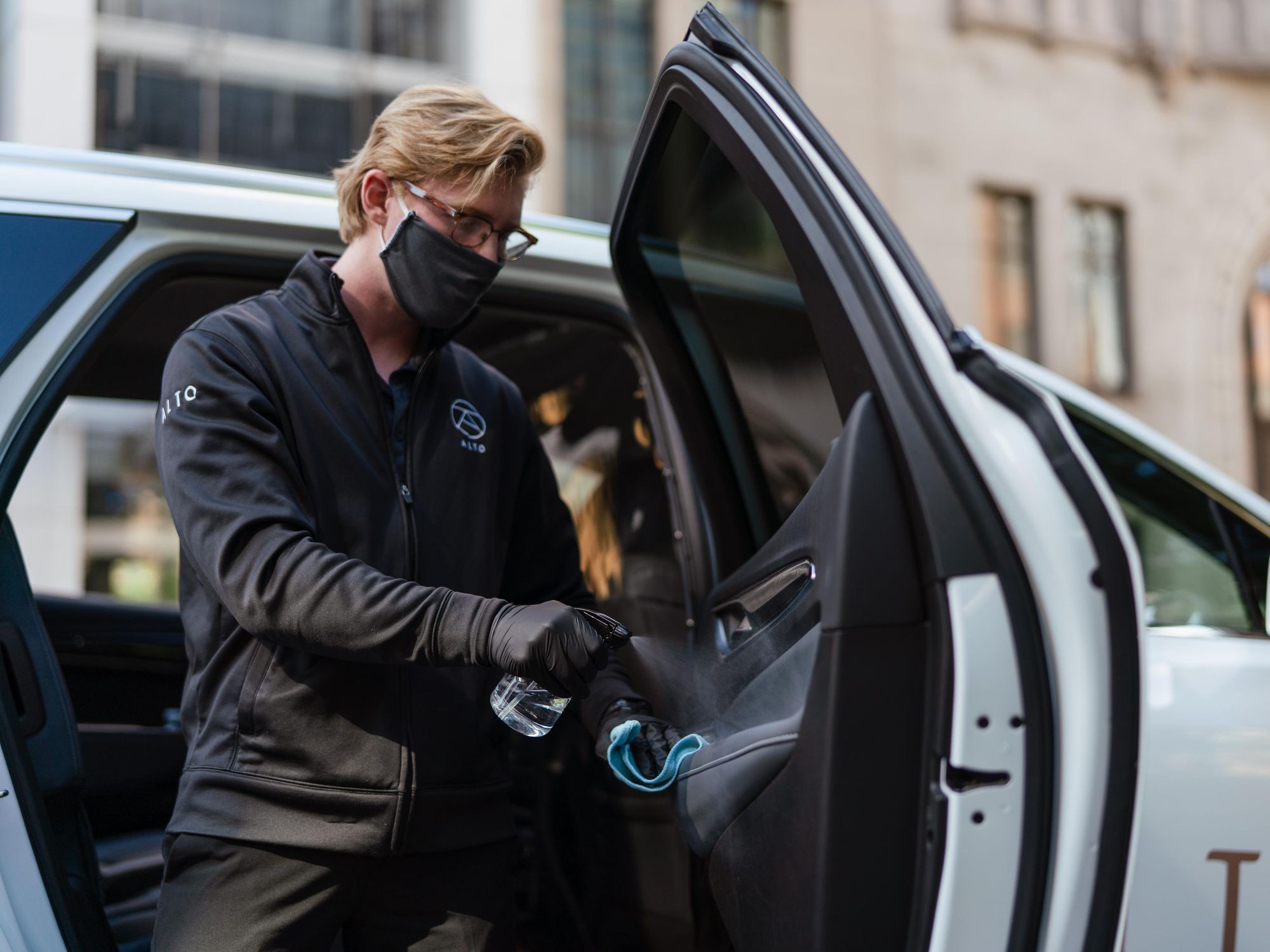Ride-Hailing Service Alto Debuts in Los Angeles, Going After Uber and Lyft
Francesca Billington is a freelance reporter. Prior to that, she was a general assignment reporter for dot.LA and has also reported for KCRW, the Santa Monica Daily Press and local publications in New Jersey. She graduated from Princeton in 2019 with a degree in anthropology.

The Texas ride-hailing startup Alto hopes to give tech giants like Uber and Lyft some stiff competition in Southern California with an employee model and a slew of safety measures — from masks to HEPA cabin air filters.
The company launched its app in Los Angeles on Tuesday at a time when the pandemic has hurt ride-hailing services' bottom lines and employee relations remain frayed by a spat over working conditions.
The move into L.A. marks Alto's first expansion outside of Texas, where it launched in 2016. The venture-backed company, which has so far raised $20.5 million, announced plans to begin operations in California last fall but the team rescheduled when coronavirus cases began to rise again.
"We're hoping people don't use us to go out to dinner or events but we know that some travel is essential," said co-founder and CEO Will Coleman. "We want to be there to serve those use cases in the safest way possible."
Alto owns its own fleet of clean SUVs and runs extensive background checks on new drivers. And, unlike its competitors, it classifies its drivers as W-2 employees, dodging the ongoing battle waged by Uber and Lyft over worker classification. The two companies poured millions into Proposition 22, which passed in November and exempted them from a state law that would require them to treat drivers as employees rather than contractors.
Beginning Tuesday, Alto will be available to consumers hailing on-demand rides in Santa Monica, Venice, Marina del Rey and West Hollywood. Users outside these areas can pre-book rides and the company hopes to expand services across the city this year.
To offset the costs that come with hiring employees, Alto charges more for rides — requesting a trip through Alto costs about 30% to 40% more than an UberX. Coleman describes his service as "affordable luxury" that promises consistency, like the Starbucks for ridesharing.
But launching a new transportation service could pose some challenges.
Ride-hailing services are bleeding revenue. Uber reported an 18% decline in the third quarter of 2020. Meanwhile, some drivers are hesitant to work. Rideshare Drivers United, a group that opposed Prop 22, found that only 20% of its members are still driving.
"Many of us are doing gigs that pose a little less risk such as food delivery," said Nicole Moore, an organizer with Rideshare Drivers United. "Drivers are at pretty high risk because the people in their cars are either essential workers or people not taking the health directives seriously."
Coleman said the company hasn't struggled to hire yet and it's onboarded 25 to 30 drivers in the city.
"We definitely have slowed down the progression of our launch," he said. "We know there are fewer use cases. Clearly, there's going to be less movement than if restaurants were open, for example."
As L.A. County continues to battle a surge in new cases and hospitalizations, Alto wants to position itself as the "safer" ridesharing option — for both drivers and consumers.
Plexiglass barriers and air filters are installed in each Alto car and drivers disinfect the vehicle between rides. The company also provides free PPE to drivers and riders.
Moore said many drivers she knows are paying for masks and disinfectant out of pocket. Some choose not to clean their cars between rides because they aren't paid for that time. She said Alto's selling points would be a "huge step up for drivers and, I would expect, passengers as well."
Lyft said it has a health and safety program in place for drivers.
Alto currently employs 200 drivers in Texas. Many previously drove for traditional rideshare services — taxi and limo companies — while others came from the hospitality and retail industries. As restrictions ease in L.A., Coleman is prepared to onboard more employees.
He also has plans to close a new round of fundraising in the first quarter. By the end of 2021, he wants to launch Alto in four to six new cities, including one or two in California.
- Alto, Arcade City Rideshares Eye L.A. as Uber, Lyft Stall - dot.LA ›
- Archer Plans to Fly Electric Air Taxis Around LA by 2024 - dot.LA ›
- Brightline’s Train Between LA and Las Vegas Back on Track - dot.LA ›
- Why Gen Z is Driving Less Than Past Generations - dot.LA ›
Francesca Billington is a freelance reporter. Prior to that, she was a general assignment reporter for dot.LA and has also reported for KCRW, the Santa Monica Daily Press and local publications in New Jersey. She graduated from Princeton in 2019 with a degree in anthropology.





 Image Source: Skyryse
Image Source: Skyryse